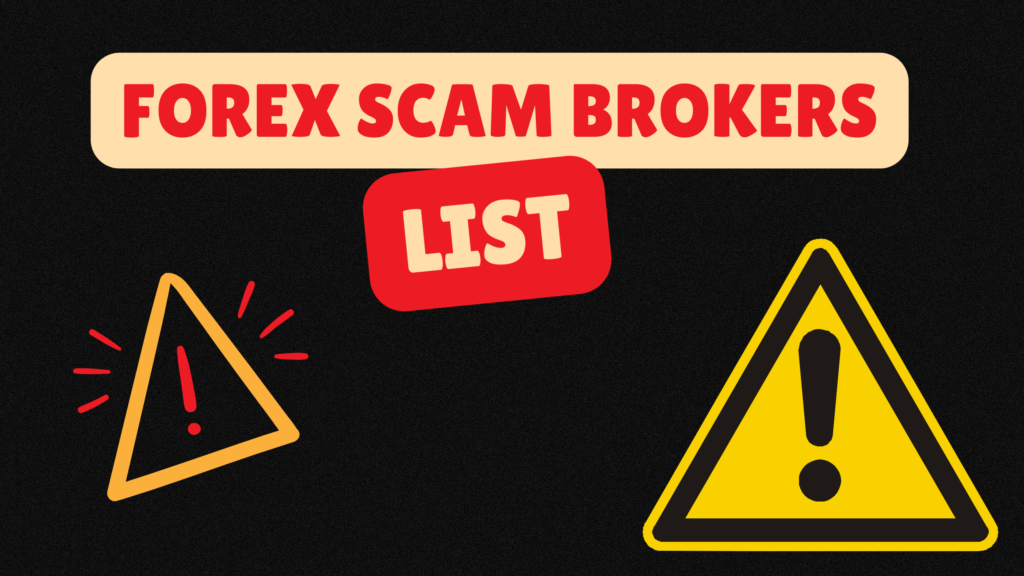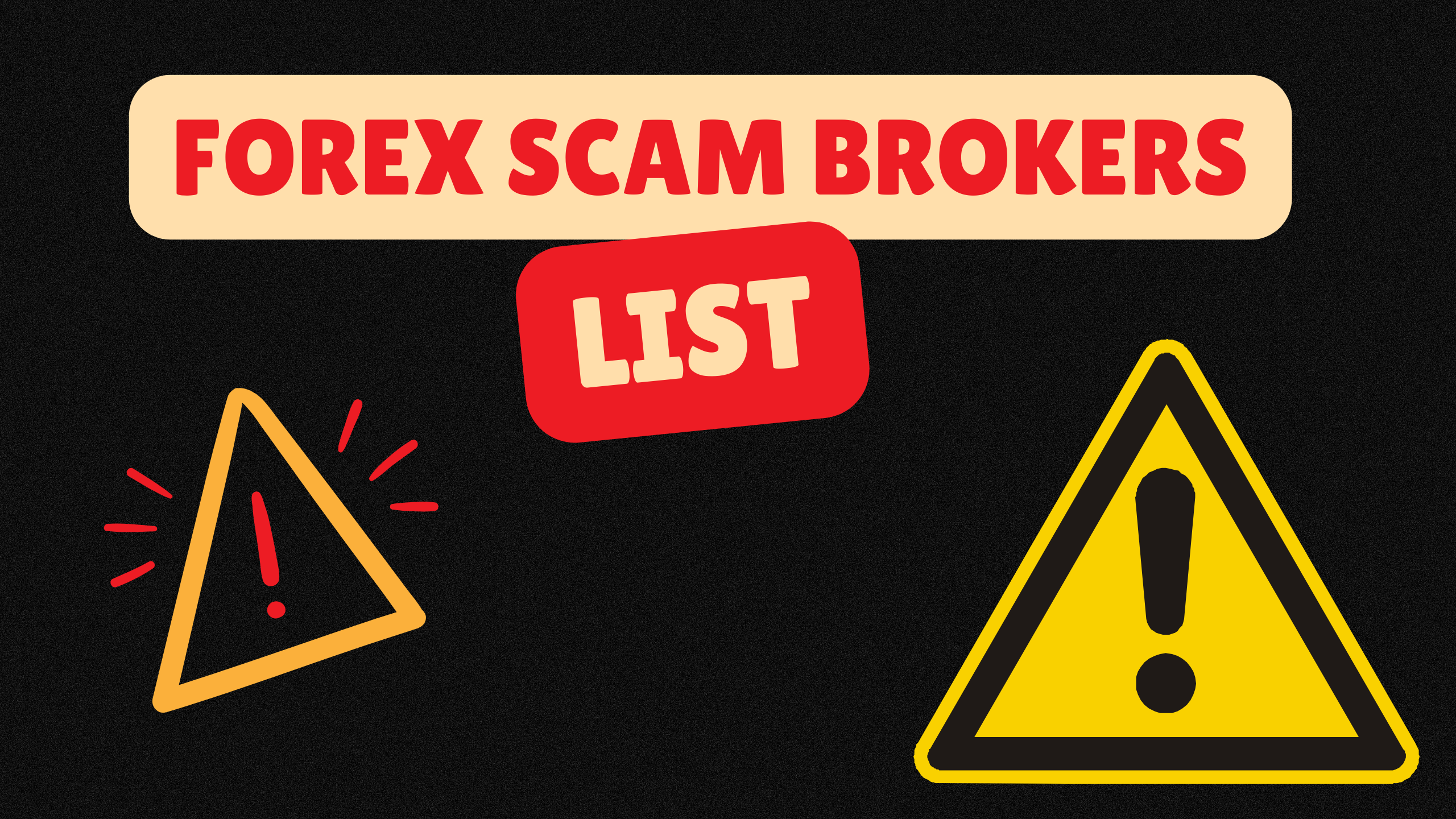|
Getting your Trinity Audio player ready…
|
Forex trading can be a lucrative endeavor, offering opportunities to profit from the currency market’s fluctuations. However, with the rise in popularity of forex trading, there has been a corresponding increase in forex trading scams. These scams prey on both novice and experienced traders, promising high returns with minimal risk, only to leave them with empty accounts. In this article, we’ll delve into the world of forex trading scams, provide a list of known scam brokers, and offer guidance on how to protect yourself from these fraudulent schemes.

What is Forex Trading?
Forex trading, or foreign exchange trading, involves buying and selling currencies to profit from changes in their exchange rates. It’s one of the largest and most liquid markets in the world, with trillions of dollars traded daily. Despite its potential for profit, the forex market is also rife with scams due to its decentralized nature and the ease with which fraudulent brokers can operate.
The Rise of Forex Trading Scams
As more people seek to capitalize on the opportunities in the forex market, scam brokers have become increasingly sophisticated. They use enticing marketing tactics to lure unsuspecting traders, promising guaranteed profits and low-risk investments. Unfortunately, many fall victim to these scams, losing their hard-earned money in the process.
Importance of Identifying Scam Brokers
Recognizing and avoiding scam brokers is crucial for any trader. By identifying red flags and understanding common scam tactics, traders can protect themselves and their investments. Knowledge is the first line of defense against these fraudulent schemes.
Understanding Forex Trading Scams
Common Tactics Used by Scam Brokers
Scam brokers employ various tactics to deceive traders. These include:
- High Returns with Low Risk: Promising unrealistic returns with little to no risk.
- Unregulated Operations: Operating without proper regulation or licensing.
- Lack of Transparency: Providing limited information about their operations, fees, and trading conditions.
- Aggressive Marketing: Using high-pressure sales tactics to convince traders to invest quickly.
- Phony Bonuses: Offering bonuses with hidden terms that make withdrawals nearly impossible.
The Psychology Behind Scams
Scam brokers often exploit the psychological vulnerabilities of traders. They create a sense of urgency, making traders feel they might miss out on a great opportunity if they don’t act quickly. Additionally, they use the allure of easy money to prey on the greed and hopes of potential victims.
Red Flags to Watch Out For
Promises of High Returns with Low Risk
If a broker promises high returns with little to no risk, it’s a major red flag. All investments carry some level of risk, and the forex market is no exception. Be wary of any broker that guarantees profits.
Unregulated Brokers
Regulation is essential in the forex market. Regulated brokers are required to adhere to strict standards and practices, ensuring a level of safety for traders. Always verify a broker’s regulatory status before investing.
Lack of Transparency
A legitimate broker will provide clear information about their operations, fees, and trading conditions. If a broker is vague or evasive about these details, it’s a sign they may not be trustworthy.
List of Known Forex Trading Scam Brokers
|AffluenceFX |scam |
|AmeritForexTrade |scam |
|Astrofxoptions |scam |
|BitForexTrade |scam |
|CoingateForexPro |scam |
|EasyFxExchange |scam |
|Fastforextradelab |scam |
|Fastsecurefx |scam |
|Forex Capital Gain |scam |
|Forex Trade Platform |scam |
|FortressFXCapital |scam |
|FX Trading Digital Pay |scam |
|Octa Stocks FX |scam |
|panfxtrades |scam |
|Plutoforextrade |scam |
|Professional Toptrade |scam |
|Savetrust FX |scam |
|SpringFX |scam |
|TradeWise FX |scam |
|Tranquil Trade FX |scam |
How to Verify a Broker’s Legitimacy
Checking Regulatory Status
Always check if the broker is regulated by a recognized financial authority. Regulatory bodies like the FCA (Financial Conduct Authority) in the UK, ASIC (Australian Securities and Investments Commission) in Australia, and the SEC (Securities and Exchange Commission) in the US provide a level of oversight and protection for traders.
Reading Reviews and Testimonials
Look for reviews and testimonials from other traders. Be cautious of overly positive reviews, as these could be fake. Check multiple sources to get a well-rounded view of the broker’s reputation.
Researching Broker’s History
Conduct thorough research into the broker’s history. Check if they have been involved in any scandals or regulatory actions. A quick online search can reveal a lot about a broker’s past.
Steps to Take If You’ve Been Scammed
Reporting to Authorities
Report the scam to relevant authorities, such as financial regulatory bodies and law enforcement. This can help prevent others from falling victim to the same scam.
Seeking Legal Advice
Consult with a legal professional who specializes in financial fraud. They can provide guidance on the best course of action and help you navigate the recovery process.
Recovering Your Funds
While recovering funds from a scam broker can be challenging, it’s not impossible. Some regulatory bodies offer compensation schemes, and legal action may also result in the recovery of some or all of your lost funds.
Preventive Measures to Avoid Scams
Educating Yourself About Forex Trading
Knowledge is power. Educate yourself about the forex market, how it operates, and the common scams to watch out for. The more informed you are, the better equipped you’ll be to identify and avoid scams.
Using Trusted and Regulated Brokers
Always choose brokers that are regulated by reputable financial authorities. This provides a layer of security and ensures that the broker adheres to strict standards and practices.
Staying Informed About Common Scams
Stay up-to-date on the latest scams and fraudulent activities in the forex market. Regulatory bodies and financial news websites are good sources of information on current scams.
Conclusion
Forex trading offers exciting opportunities, but it’s essential to be aware of the risks, especially when it comes to scam brokers. By understanding the common tactics used by scammers, recognizing red flags, and taking preventive measures, you can protect yourself and your investments. Stay vigilant, do your research, and always prioritize your financial safety.
FAQs
What are the most common forex trading scams? The most common scams include promises of high returns with low risk, unregulated brokers, lack of transparency, aggressive marketing tactics, and phony bonuses.
How can I identify a scam broker? Look for red flags such as unrealistic promises, lack of regulation, and vague information about operations and fees. Research the broker’s history and read reviews from other traders.












Leave a Reply